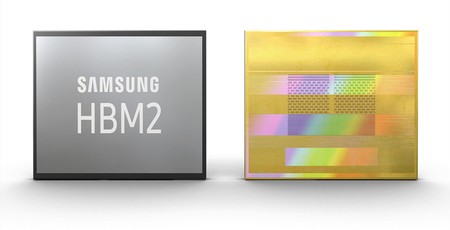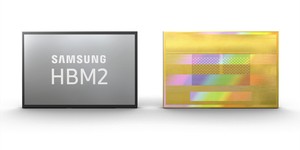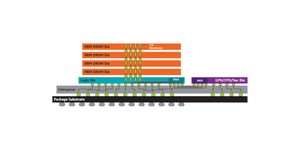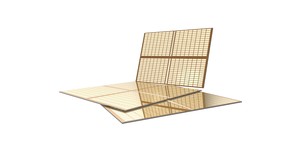
Samsung is betting heavily on the success of High-Bandwidth Memory 2 (HBM2), ramping up mass production on a new variant it claims is the industry's fastest at 2.4 gigabits per second (Gb/s) per pin.
Designed to replace Graphics Double Data Rate (GDDR) memory in graphics and accelerator applications, High-Bandwidth Memory reduces the distance between the RAM and the processor by placing both on an interposer layer above the integrated circuit package substrate. Coupled with 3D chip technology that sees multiple HBM dies stacked vertically to increase capacity without increasing footprint, HBM offers improved power efficiency in a smaller space.
Clearly viewing HBM as the logical future of high-performance RAM, Samsung has announced it has ramped up mass production on a HBM2 variant, codenamed Aquabolt, which currently sits as the market's fastest 8GB HBM2 implementation at 2.4Gb/s per pin for a total of 307GB/s per package - nearly double its first-generation HBM2 implementation, Flarebolt.
'With our production of the first 2.4Gbps 8GB HBM2 we are further strengthening our technology leadership and market competitiveness,' crowed Jaesoo Han, executive vice president of Samsung's Memory Sales & Marketing division. 'We will continue to reinforce our command of the DRAM market by assuring a stable supply of HBM2 worldwide, in accordance with the timing of anticipated next-generation system launches by our customers.'
The company's 8GB Aquabolt HBM2 modules are produced using eight 8Gb dies connected via over 5,000 through-silicon vias (TSVs) per die, a number which Samsung notes can cause collateral clock skew avoided through an as-yet unspecified design tweak. An increase in the number of thermal bumps in each package and the addition of a protective layer at the bottom has further enhanced the design over its predecessor, the company claims.
Thus far Samsung has not offered details on when the first Aquabolt-based HBM2 products will be hitting the market, but is clearly expecting the parts to feature heavily in next-gen products in the fields of 'supercomputing, artificial intelligence, and graphics processing'.

MSI MPG Velox 100R Chassis Review
October 14 2021 | 15:04








Want to comment? Please log in.